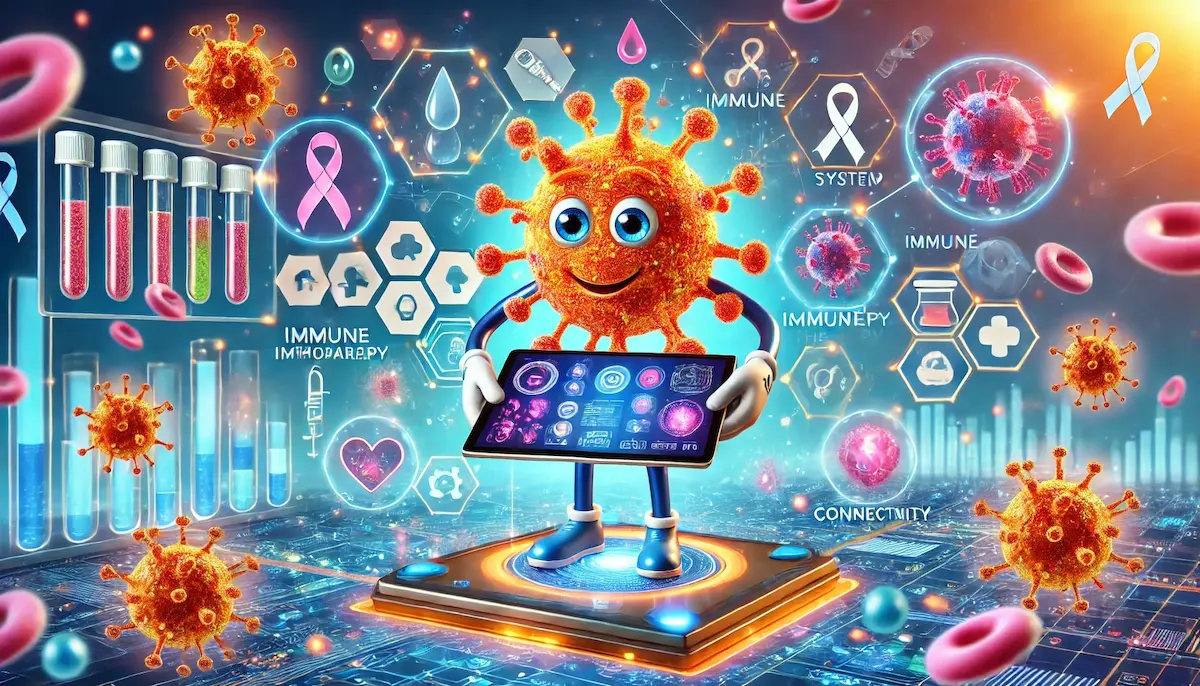Immunotherapy is a cutting-edge approach to treating diseases, particularly cancer, by harnessing and enhancing the body’s immune system. This revolutionary method aims to boost the natural defenses to fight diseases more effectively, offering new hope for patients with conditions that were previously difficult to treat.
What is Immunotherapy?
Immunotherapy involves stimulating or modifying the immune system to help it recognize and combat diseases more efficiently. It can involve the use of substances made by the body or in a laboratory to improve or restore immune function. Immunotherapy is primarily used in the treatment of cancer, but it also has applications in managing autoimmune diseases, allergies, and infections.
Types of Immunotherapy
Monoclonal Antibodies
Monoclonal antibodies are lab-created molecules that can bind to specific targets on cancer cells. These antibodies can mark cancer cells for destruction by the immune system or block signals that help cancer cells grow. Examples include trastuzumab for breast cancer and rituximab for certain types of lymphoma.
Checkpoint Inhibitors
Checkpoint inhibitors are drugs that block proteins on immune cells that act as brakes, preventing them from attacking cancer cells. By inhibiting these checkpoints, the immune system can recognize and destroy cancer cells more effectively. Pembrolizumab and nivolumab are well-known checkpoint inhibitors used to treat various cancers.
Cancer Vaccines
Cancer vaccines are designed to elicit an immune response against specific cancer antigens. Unlike traditional vaccines that prevent disease, cancer vaccines treat existing cancers by boosting the body’s natural defenses. An example is the human papillomavirus (HPV) vaccine, which helps prevent cervical cancer.
Adoptive Cell Transfer (ACT)
ACT involves collecting and using a patient’s own immune cells to treat their cancer. One type of ACT, CAR-T cell therapy, modifies T cells to express chimeric antigen receptors (CARs) that can target and kill cancer cells. This approach has shown remarkable success in treating certain blood cancers like leukemia and lymphoma.
Cytokines
Cytokines are proteins that play a crucial role in immune system signaling. In immunotherapy, cytokines like interleukins and interferons are used to enhance the immune response against cancer. These substances can boost the activity of immune cells and improve their ability to attack cancer cells.
Benefits of Immunotherapy
Targeted Treatment
Immunotherapy provides a more targeted approach to treating diseases compared to traditional treatments like chemotherapy and radiation. It specifically enhances the immune system’s ability to attack cancer cells while minimizing damage to healthy cells.
Long-lasting Effects
Immunotherapy can lead to long-lasting remissions by creating a memory response in the immune system. This means that the immune system can continue to recognize and attack cancer cells if they reappear, providing durable protection.
Fewer Side Effects
While immunotherapy can have side effects, they are often different from those associated with chemotherapy and radiation. Because immunotherapy targets the immune system rather than directly attacking cancer cells, it can spare normal, healthy cells, leading to fewer and less severe side effects.
Combination Therapy
Immunotherapy can be used in combination with other treatments such as chemotherapy, radiation, and targeted therapies. This combined approach can enhance the overall effectiveness of treatment and improve patient outcomes.
Challenges and Future Prospects
Resistance
Not all patients respond to immunotherapy, and some may develop resistance over time. Understanding the mechanisms of resistance is crucial for improving the effectiveness of these treatments and developing new strategies to overcome it.
Side Effects
Immunotherapy can cause immune-related side effects, such as inflammation and autoimmune reactions. Managing these side effects is essential to ensure the safety and well-being of patients undergoing treatment.
Cost and Accessibility
The high cost of immunotherapy drugs can limit access for many patients. Efforts are needed to reduce costs and make these life-saving treatments more widely available.
Personalized Approaches
As our understanding of the immune system and cancer biology grows, there is a push towards developing personalized immunotherapies tailored to the specific genetic and immunological profile of each patient. This precision medicine approach aims to maximize the effectiveness of treatment and minimize side effects.
The Future of Immunotherapy
The future of immunotherapy is promising, with ongoing research and clinical trials continually expanding its applications and effectiveness. Advances in biotechnology, genomics, and bioinformatics are expected to drive further innovations in immunotherapy, making it an increasingly vital component of cancer treatment and beyond. As we continue to unlock the potential of the immune system, immunotherapy will likely play a central role in the fight against cancer and other diseases.
Blockfine thanks you for reading and hopes you found this article helpful.
